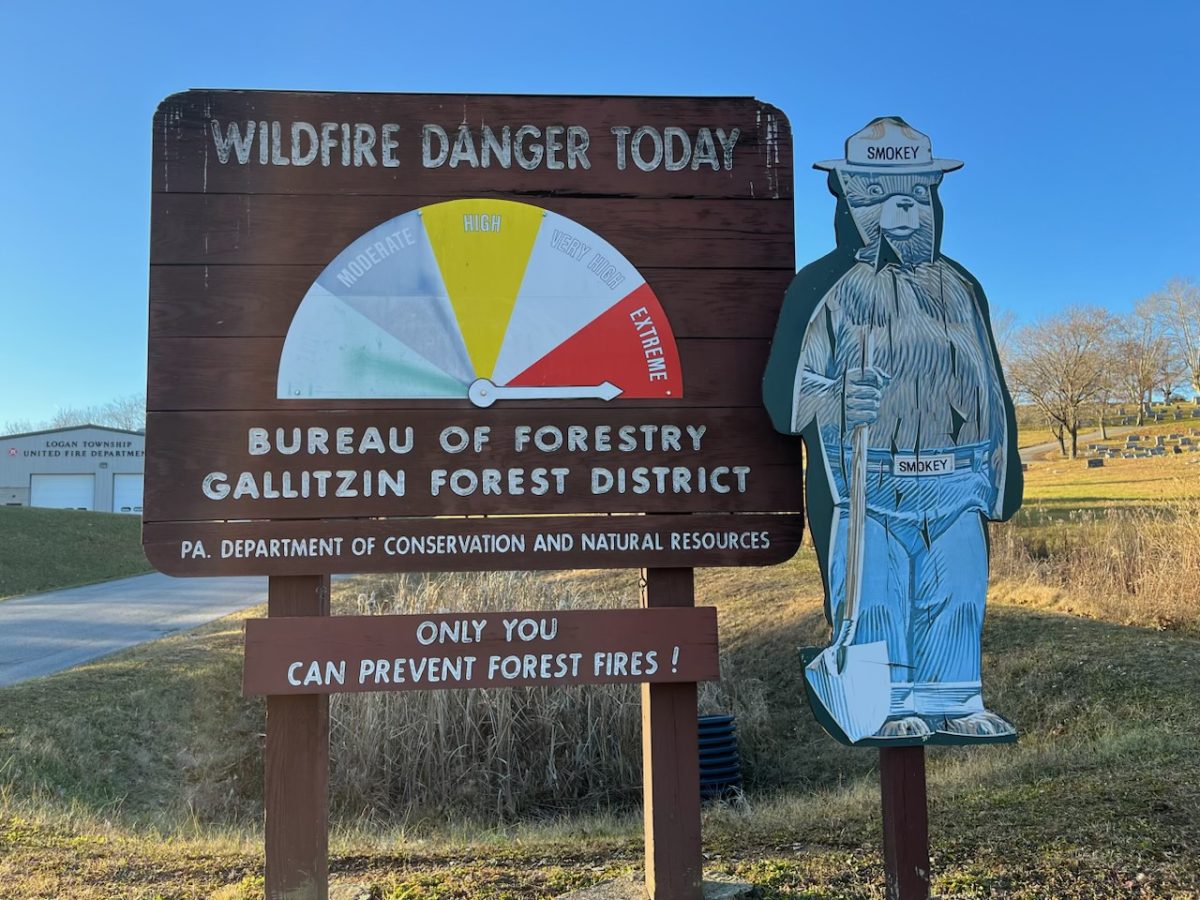On May 4, 1950 somebody discarded a cigarette in the Lincoln National Forest and the Los Tablos blaze started. Two days later the Captain Gap fire erupted. Together these fires destroyed 17,000 acres of valuable grasslands and forest. As firefighters attempted to control the inferno, a fire crew was made aware of a badly hurt cub that was clinging for its life on the side of a burnt pine tree. Originally, the cub was named “Hotfoot Teddy”, but it quickly changed to Smokey after a character the ad council and National Forest Service created years before. News of the injured cub got out, the popularity of the campaign spread like wildfire, so much so that Smokey was even given his own zip code (20252) by the U.S. Postal Service because of the incredible amount of mail he was receiving.
Since then, the government has only further worked to commercialize Smokey. In 1952 Congress passed the Smokey Bear Act which removed Smokey from the public domain and placed him under the control of the Secretary of Agriculture. The act created a fine associated with the unauthorized people using Smokey’s name, likeness, or character. If an unauthorized person infringes upon the act, they can be ordered to pay damages that go towards the funding of wildfire education. Additionally, the act provided that any royalties coming from the Smokey campaign are to be used for the same purpose. With all of these efforts by the government it is no wonder why Smokey became the phenomenon he did, but should his message still be supported?
If you’re anything like seven out of 10 American adults, you’re probably able to recall that Smokey’s message is “Only YOU can prevent wildfires,” but that’s actually pretty untrue. As you probably recall, over this past summer that some dubbed “the summer of smoke,” Canada experienced record smashing wildfires that reached all the way to Norway, that’s 3,366 miles away. By early June the amount of forest burnt in an average year had already been reached and they didn’t show signs of stopping. Roughly 45.7 million acres of land burned in these summer fires alone, absolutely obliterating the previous record of 17.5 million acres burnt in a single year. The reason why is astonishingly clear:climate change.
Smokey would love to tell you all about how nine out of 10 wildfires are caused by humans, but the campaign fails to forcefully speak out about the incredible impact burning fossil fuels has on making wildfires more detrimental. In findings published by Environmental Research Letters in 2023, they revealed that emissions from the world’s 88 biggest fossil fuel companies alone are to blame for 37% of forest fires in the western United States and Canada since 1986. The damage just done by these fossil fuel companies amounts to the burning of at least 19.8 million acres of western U.S. forests, roughly equivalent to the size of the United Arab Emirates.
The same study also found that altogether these 88 companies that include Shell, ExxonMobil, and BP are responsible for roughly half of the one degree increase experienced since the turn of the 20 century. The extremes caused by this warming resulted in more water in the atmosphere in some areas and less in others. This is why droughts, hurricanes, floods and fires have been getting worse and more frequent.
In relation to fires, the warming caused by climate change has dried out forest vegetation and soil- creating unnaturally arid environments that are prime for fires erupting – exactly what happened to Canada in 2023. Of course, these fires need an ignition source, like a cigarette bud or bonfire not put out properly, but it’s the conditions caused by climate change that are making wildfires so much more damaging, something Smokey doesn’t seem overly concerned about informing the public about in any meaningful way.
This is because the Smokey Bear campaign plays into this weird rugged American individualism that is quite dangerous, especially in this dire moment. Instead of focusing on the larger systems that perpetuate the climate’s changing, like multi-billion dollar corporations and the government’s unwillingness to regulate them, Smokey instead focuses on advocating for “you” to prevent wildfires. This strategy, that places the bulk of responsibility on individuals, is akin to the way the fossil fuel industry has bombarded us with their PR campaign urging us to take action against climate change by doing things like reducing our carbon footprint. These campaigns border on propaganda are just distractions to take the issue of climate change, in large part their doing, and make it a cute little self improvement project.
But just because individuals are not to blame for climate change, I don’t think we should just roll over, consume as much oil as possible, start an unsustainable cow farm and become totally nihilistic. But I just think we need to hold those responsible, responsible. Same goes with the issue of forest fires, I don’t think individuals shouldn’t put out their bonfires properly just because they aren’t the source of the climate change causing these unprecedented fires. If Smokey actually wants to fulfill the goal of preventing wildfires, then it’s crucial that he moves the conversation away from individual action and focuses on the real culprits.










Ashley Lieberman • Jan 6, 2024 at 3:15 pm
Smokey The Bears’ slogan “Only You Can Prevent Forest Fires” was publicized to remind us that if we strike a match in the wild, or don’t put out a campfire, it can have lethal consequences. It taught responsibility to decades of young people, myself among them. If it’s not broken, don’t fix it. We still don’t want campers, young, people, crazy and curious folks thinking that “a little burn” is ok.
If you are looking for votes to implement new ways of caring for our forests, address it on those terms directly to scientists, voters, and the public, educationally. The manipulative icons and mottos you have in mind may well encourage behavior that has the power to be detrimental.
Ember The Fox may put matches in the wrong hands.
Paul Morgan • Dec 11, 2023 at 3:35 pm
I think you make a good argument but the “ONLY you can prevent forest fires” is completely true because the people that are running the companies that are causing global warming could stop producing gasses that cause the global warming and prevent more forest fires from happening